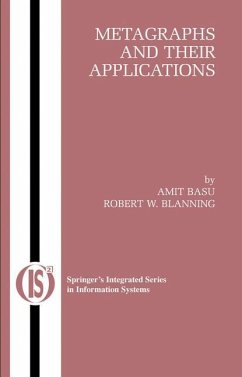
The Dynamics of International Information Systems
Anatomy of a Grounded Theory Investigation
Versandkostenfrei!
Versandfertig in 6-10 Tagen
76,99 €
inkl. MwSt.
Weitere Ausgaben:

PAYBACK Punkte
38 °P sammeln!
With this new monograph, Hans Lehmann demonstrates the efficacy of using the Grounded Theory method to study the factors that lead to success - or failure - in the creation and ongoing management of the international information systems (IIS) within global enterprises. He presents three cases of large transnational companies he worked with in this study and describes in detail the steps in the analysis of findings and the incremental conceptualization that finally result in a substantive theory of IIS. There is also a companion website that contains a full set of analysis notes to add a further level of detail. Grounded Theory was developed in the social sciences as a means of recording, analyzing, understanding and then fully explaining what was happening within a given social situation - so that theories could be developed that were firmly grounded in those circumstantial facts. The method is very well-suited to solving information systems problems in any enterprise setting, let alone in those situations peculiar to multi-national enterprises.
The serious difficulties facing the developer of international information systems (i.e. supporting business functions in different countries) are widely known and their propensity to catastrophic failure has been acknowledged among practitioners for quite some time. Despite the often pivotal importance that such systems generally have scholarly research in this field has been surprisingly sparse. Information technology applications with a global range and reach are still largely unstudied and under-explored. Subsequently there is a distinct dearth of theoretical frameworks for dealing with them. After a career in information technology line management I have been involved with multinational enterprises and their information systems for over a decade as a consultant, working in Africa, the UK, continental Europe, North America and Australasia. It was on joining a university in the early nineties that I discovered the near-vacuum in this field of research. When I decided to make international information systems my field of research it became clear that fairly fundamental work needed to be done. I started the project described further on more than 10 years ago. It turned out a fairly difficult, necessarily broad based and, eventually, longitudinal research.














